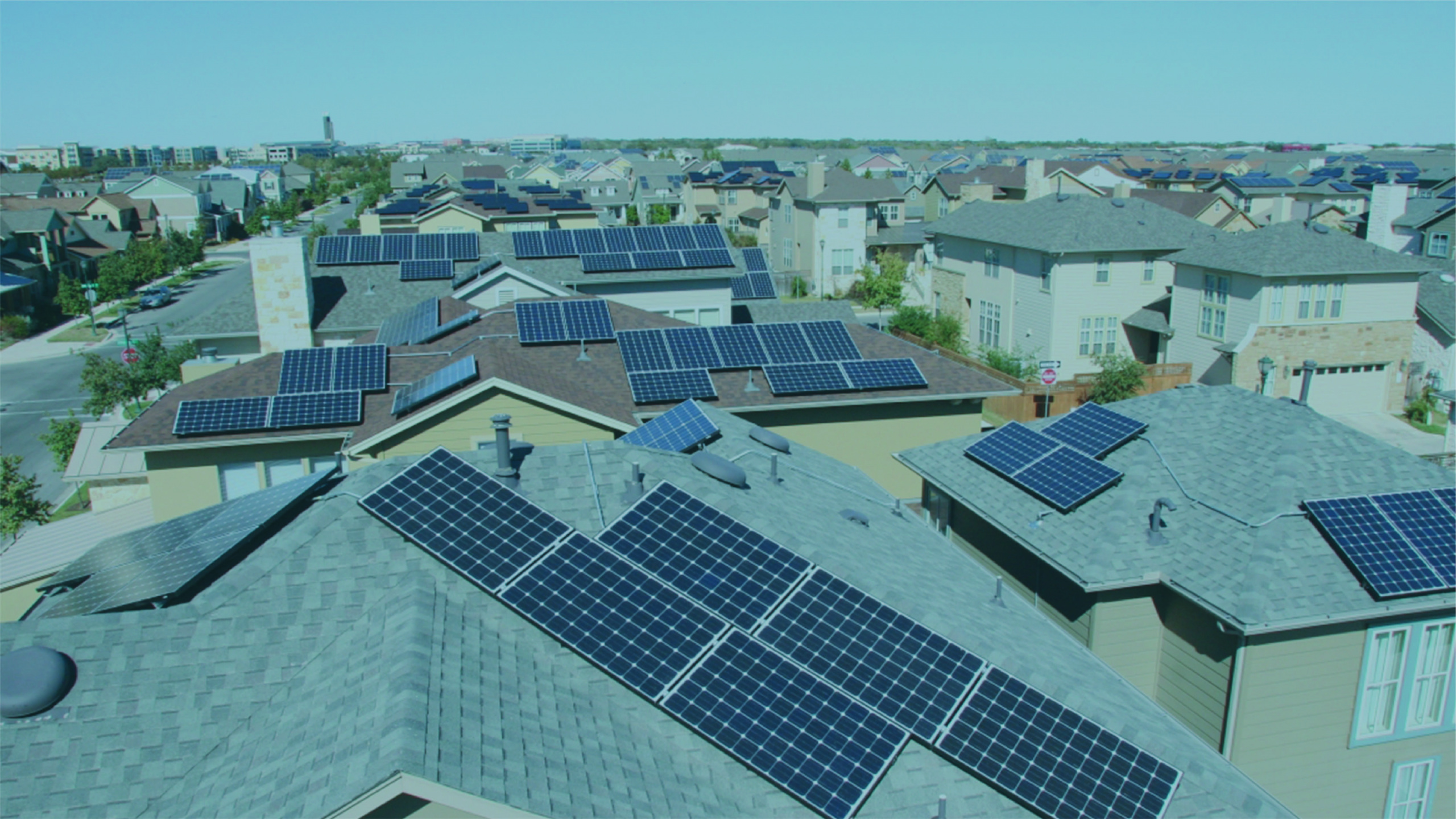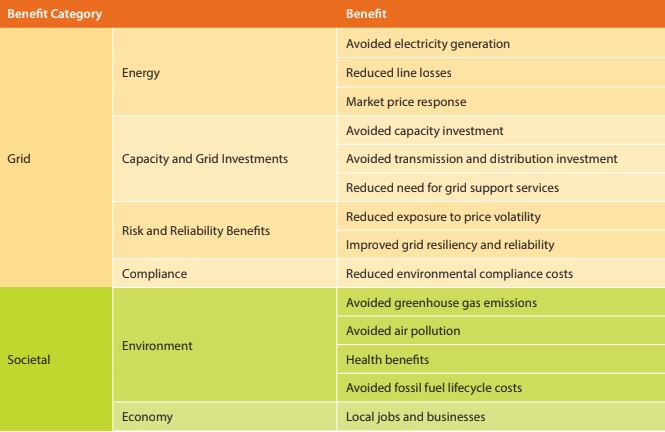The True Value of Solar
Measuring the Benefits of Rooftop Solar Power

Distributed solar energy is on the rise, generating enough electricity to power more than 6 million homes each year, and resulting in annual carbon dioxide emission reductions equivalent to taking 4.4 million passenger vehicles off the road. Public policy has been a key factor in driving the growth of solar energy – recognizing the enormous benefits that solar power can provide both today and in the future.

Rooftop solar energy brings a wide variety of benefits to the grid and to society.
Elena Elissena via Shutterstock
Value-of-solar studies inconsistently account for solar energy’s benefits, especially beyond the electric grid, resulting in dramatically different conclusions.
Boston, MA - National Environmental Energy Laboratory Photo
Value-of-solar studies should account for all of solar energy's benefits to the grid and society.
U.S. Department of Energy1of 3
To help develop smart public policy around solar energy, many public utilities commissions, utilities and other organizations have conducted or sponsored “value-of-solar” studies that attempt to quantify the monetary value of the benefits delivered, and costs imposed, by the addition of solar energy to the electric grid. Studies that include a full range of solar energy’s benefits – including benefits to the environment and society – reliably conclude that the value of those benefits approximates or exceeds the compensation solar panel owners receive through policies such as net metering.
Many value-of-solar studies, however – especially those conducted by electric utilities – have left out key benefits of solar energy. Policymakers and members of the public who consult these studies may be left with a false impression of solar energy’s value to the grid and society, with damaging results for public policy.
To make decisions that serve the public interest, policymakers should account for the full value of solar energy, including societal benefits to the environment and public health.

Rooftop solar energy brings a wide variety of benefits to the grid and to society.
Rooftop solar power generally adds value to the electric grid. It not only reduces the need for generation from and investment in central power plants, but over the long lifetime of solar energy systems it also can increase price stability and grid reliability, and reduce environmental compliance costs.
As a clean, emission-free energy source often located on private property and built with considerable private, non-ratepayer investment, rooftop solar brings valuable societal benefits. Solar energy reduces global warming pollution, and also reduces emissions of dangerous air pollutants such as nitrogen oxides, mercury and particulate matter.
Value-of-solar studies inconsistently account for solar energy’s benefits, especially beyond the electric grid, resulting in dramatically different conclusions.
Studies that include the benefits of solar energy beyond the grid generally find that its value exceeds the retail rate of electricity. Recent studies from states including Maine, Pennsylvania and Arkansas have found that solar energy brings substantial environmental benefits, and that rooftop solar owners would provide a net benefit to society even with net metering compensation.
Studies commissioned by electric utilities generally fail to account for benefits beyond the grid, resulting in far lower values of solar. A 2016 report published by Environment America Research and Policy Center and Frontier Group reviewed value-of-solar studies and found that, of 16 studies reviewed, only eight accounted for avoided greenhouse gas emissions, and no studies commissioned by utilities accounted for the value of solar energy beyond the grid. The studies that left out societal benefits valued solar, on average, at 14.3 cents per kilowatt-hour, compared to 22.9 cents for those studies that at least accounted for greenhouse gas emissions.
Value-of-solar studies should account for all of solar energy’s benefits to the grid and society.
Policymakers must account for the societal value of reduced power plant emissions, in particular the value of avoided greenhouse gas emissions and pollutants that contribute to the formation of smog and soot.
Policymakers should also seek to account for broader societal impacts of solar energy, including “upstream” impacts of fossil fuel production and use, such as methane emissions from fracking, and local economic development impacts.
The Benefits of Rooftop Solar Energy


